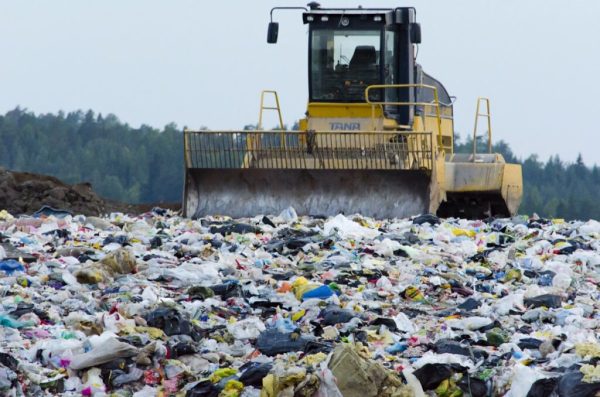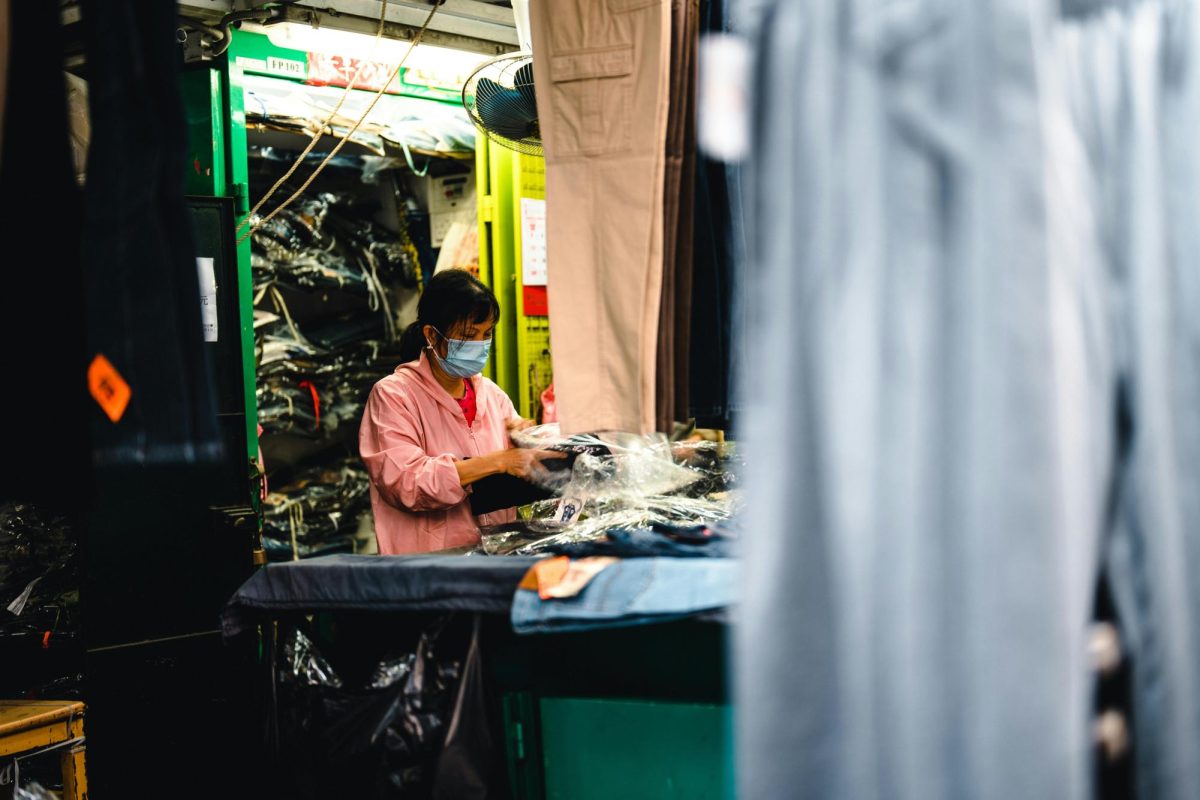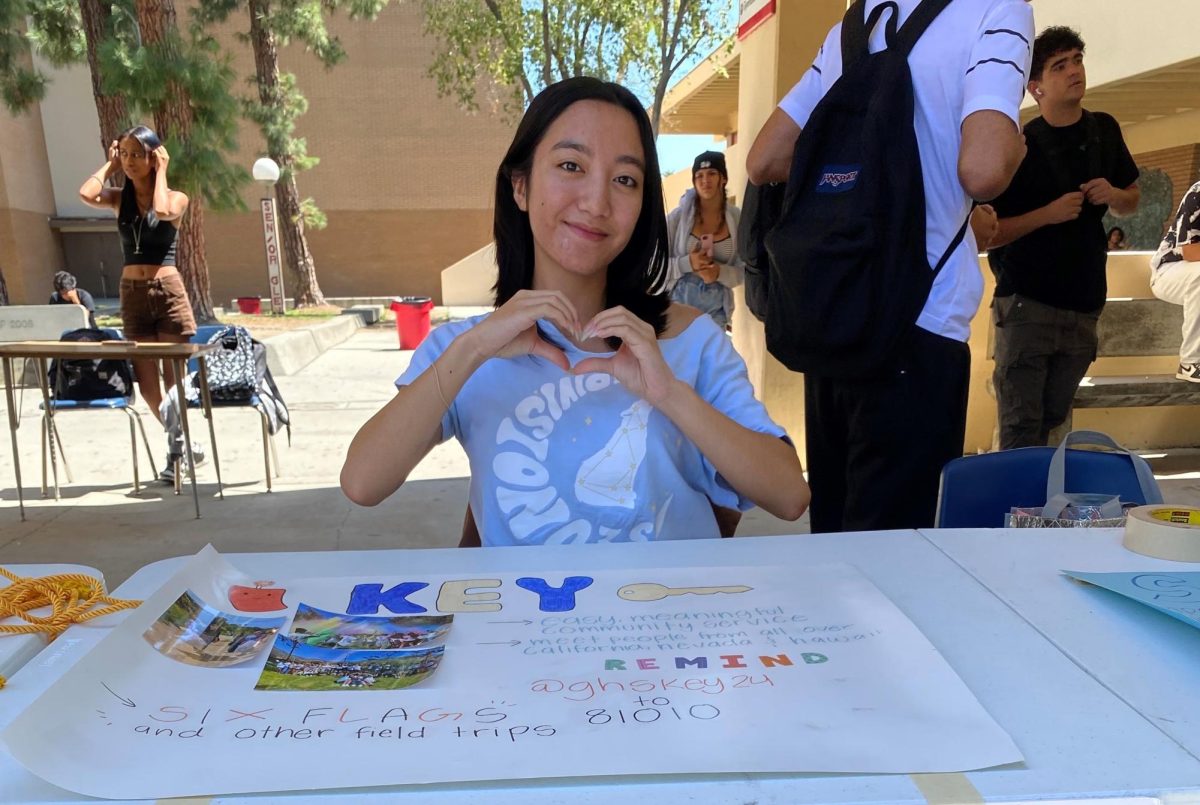“Shop like a billionaire!”
Click. A new purchase.
One by one, they add up to millions of garments that have to be rushed to be made. Recently, we have seen a growth in the popularity of “fast fashion” brands like SHEIN and Temu, because of their cheap prices. Videos about “hauls” and cheap “dupes” for expensive products have been blowing up on TikTok.
Despite these brands’ ethical concerns, many people say that they “just want cheap clothes” and “it’s not their business.” But I hate to disappoint you, because these people are just showing their ignorance.
The COVID-19 pandemic pushed shoppers online during the quarantine period. During this time, SHEIN’s popularity blew up, and Temu quickly followed, after it launched its online store in 2022.
However, not all fast fashion companies are solely online, including popular brands, such as H&M, ZARA, Hollister, and Brandy Melville. A recent documentary titled Brandy Hellville & the Cult of Fast Fashion reveals the harmful practices implemented by Brandy Melville.
According to the UN Alliance for Sustainable Fashion, the fashion industry is the second biggest consumer of water, and it is responsible for 2-8% of all global carbon emissions, which according to the UN Framework for Climate Change, is about 1.2 billion tonnes annually.
Yet even after SHEIN was called out for having lead in their clothes, stealing others’ designs, and having deplorable working conditions, the company’s profits have more than doubled in 2024 alone.
This is despite the fact that their clothes fall apart in weeks, enticing people to buy more clothes more often. This both increases waste, and SHEIN’s profit margin, as people keep going back for more. This trend was recently satirized in a recent parody commercial on Saturday Night Live.

Clack, clack. Another day at work.
According to Business Insider, the working conditions at the factories producing items for SHEIN, and other fast fashion brands, are unsustainable. Workers receive about 2-4 cents for each piece of clothing they produce. These employees also receive only one day off each month, and they may be fined for up to two-thirds of their wages, if they make a mistake on even a single article of clothing.
Because their working hours are so long, these factory workers often wash their hair during their lunch breaks, and according to the BBC, a factory was found to have no emergency exits. What are they supposed to do if there’s a fire, roast marshmallows?
“One order can’t hurt.”
Based on an article by National Geographic, the UN has declared “an environmental and social emergency” in the Atacama Desert in Chile. It has been described as “the Great Fashion Garbage Patch,” due to the sheer amount of clothes that are discarded there. In 2023 alone, this desert received over 43 million tons of clothing. According to TIME, for the past thirty-five years, Garfield telephones have also been washing up along the beaches of Brittany, France.
Further, according to Euronews, fast fashion brands H&M and Zara were found to be linked to illegal deforestation in Brazil. The non-profit organization, Earthsight, found 800,000 tonnes of cotton originating from “Brazilian estates where land grabbing, violence and corruption are rife.” This cotton was approved by Better Cotton as sustainable, yet it is contributing to the rapid deforestation of the Cerrado region.
Tap. Posted. A video of the SHEIN factory comes out.
What are the comments?
“Hurry up with my package.”
“Work faster, I want my package.”
The unwavering support for these companies is what allows them to buy Super Bowl advertisements and continue to make profits. Are we really that selfish that we would rather have cheap clothes than to help the people subjected to these harsh jobs or to save the environment?
The Good On You website was created to promote brands that have shown to be sustainable, labeling brands as “We Avoid,” “Not Good Enough,” “It’s a Start,” “Good,” and “Great.” These categories are based on a brand’s treatment of their workers, their environmental policy, and their concern for animal welfare. When brands are given low ratings, the website provides recommendations for more sustainable ones.
A solution as simple as a boycott can push companies to improve their sustainability. Thrifting is a better option to find cheaper alternatives of expensive clothing, without supporting fast fashion. Overall, being informed allows us to make decisions that promote sustainability and reduce the effects of climate change.
Your purchasing decisions matter, Nitros! Don’t make excuses! Let’s take care of the planet!












